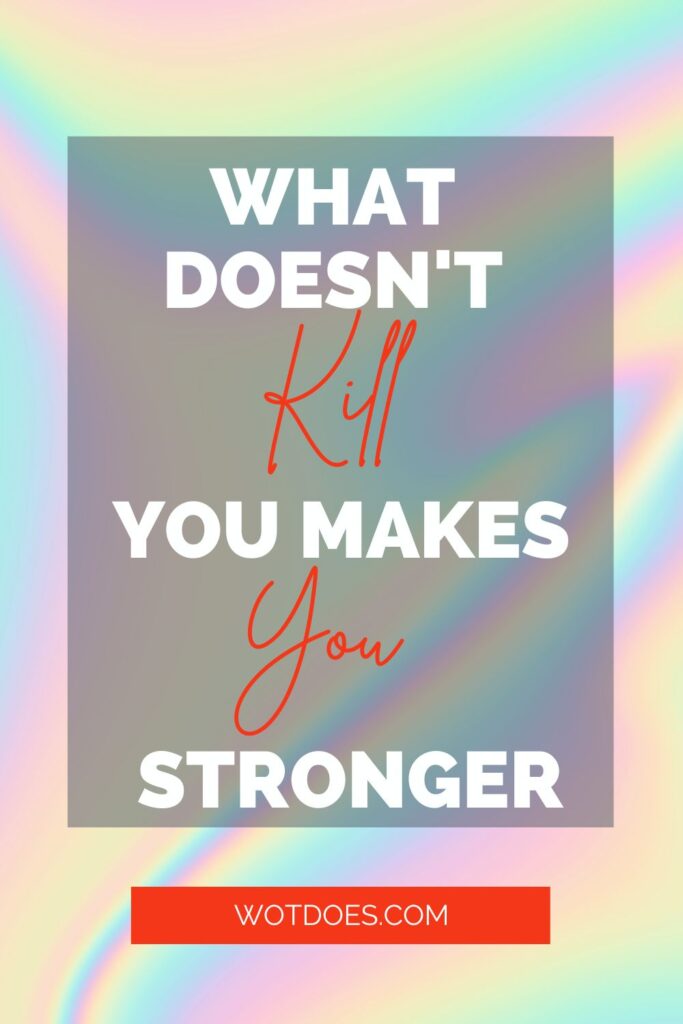The proverb “What doesn’t kill you makes you stronger” has become a ubiquitous motivational phrase, plastered on gym walls, recited in self-help books, and whispered as encouragement during trying times. But despite its popularity, the meaning and origin of this proverb are surprisingly complex and worth exploring.

What Does What Doesn’t Kill You Make You Stronger Mean?
On the surface, the proverb implies that overcoming hardship builds resilience and strength. Facing challenges and surviving adversity – these experiences toughen us up, both physically and mentally. We learn from our mistakes, develop coping mechanisms, and emerge stronger and more equipped to handle future difficulties.
However, this interpretation has its limitations. Not all experiences, especially severe trauma or loss, can be easily categorised as “strengthening.” They can leave lasting scars, emotional wounds, and psychological damage. Furthermore, the proverb can be criticised for potentially minimising the genuine struggles people face and implying that suffering is inherently beneficial, which is demonstrably untrue.
Where Did The Proverb Come From?
The exact origin of the proverb is shrouded in mystery. While often attributed to Friedrich Nietzsche, the German philosopher never actually uttered those specific words. His original quote, from his aphorism collection “Twilight of the Idols,” translates to “That which does not kill us, makes us stronger.” This more nuanced phrasing acknowledges the potential harm that can be inflicted, even if ultimately overcome.
Other possible sources include ancient Greek and Roman writings, which express similar sentiments. Regardless of its precise origin, the proverb has evolved through cultural transmission, taking on different interpretations and meanings over time.
Beyond a Black and White Proverb
So, does what doesn’t kill you truly make you stronger? The answer, like most things in life, is not a simple yes or no. The proverb offers a powerful idea: facing challenges can lead to growth and resilience. However, it’s crucial to remember that suffering isn’t always a catalyst for strength, and individual experiences vary greatly.
Instead of viewing the proverb as a universal truth, consider it a starting point for reflection. Acknowledge the complexity of hardship and celebrate the strength and resilience found within individuals navigating challenges. Remember, sometimes, what doesn’t kill you leaves its mark, and that’s okay too.
This proverb reminds us to approach challenges with courage and perseverance, prioritise self-compassion, and acknowledge the individual impact of hardship. May we all find strength in our journeys, whether through overcoming obstacles or simply learning to live with their lasting effects.
Leave a Reply